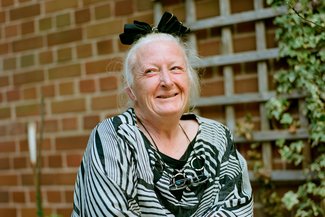
Transforming Services for Women's Futures
Our project with Changing Lives exploring how public services could be redesigned post-pandemic to better support women with multiple unmet needs.

17 May 2023
By Nia Clark, Senior Research and Engagement Officer
Women with multiple unmet needs experience any combination of poverty, homelessness, substance misuse, contact with the criminal justice system, child removal, domestic and sexual abuse, and poor mental health.
Many of these women are forced to navigate a complex web of services, administered by separate service providers. Consequently, women with multiple unmet needs often do not receive the holistic gender-, trauma-, age- and culturally responsive support that they need.
Disadvantage has a cumulative impact, meaning that women with multiple needs often engage with several services simultaneously. This can lead to several appointments per week, which can be both costly and overwhelming. Not only are public services overstretched and underfunded, but their very design can be inherently exclusionary for the most in-need.
"Waiting lists shouldn't be that long. People could… end up killing themselves or all sorts because they cannot cope." Rebecca
Trauma often underscores the life histories of women with multiple unmet needs, often arising from experiences of interpersonal violence, domestic and sexual abuse. Concerningly, our research shows that one in 20 women have experienced extensive physical and sexual violence and abuse over their lifetime, compared to one in 100 men. Of these women, 54% have a diagnosable mental health condition, 31% have an alcohol problem, 21% have been homeless and 8% are dependent on drugs. The consequences of unmet needs can be severe, even fatal, due to cycles of disadvantage and harm.
"Four friends of mine have died recently… Another woman who I know has lost children and her partner, but she's just been left to get on with her life." Haley
During interviews for our Transforming Services project, based in the North East of England, many women revealed the obstacles they face when trying to receive mental health support. For instance, some highlighted the fact that they were unable to receive support from mental health services because their problems were regarded as "substance related" and that they needed to be sober before beginning therapy.
The disconnect between mental health and drug and alcohol services – many of which are designed and commissioned separately – often leads to a siloed approach, which can prevent women from receiving vital support. Dual diagnosis refers to somebody who concurrently has both a mental illness and a substance use disorder. Given that these co-existing diagnoses affect one another, without holistic support, women can experience a spiral of harm.
"[Too often] you know what's going to happen, and it's devastating to watch. Someone deteriorates so much to the point that, after so many detoxes, what damage have you done to that person’s brain and body?" Practitioner
The fragmentation between mental health and drug and alcohol services is evidenced across the data. Our analysis of women service users accessing drugs and alcohol services in Northumberland and Tyne and Wear shows that, in 2021-2022, 1,670 new female service users presented at drug and alcohol services. Of these women, 1,385 had a mental health need, but only 250 were engaged with mental health services.*
Opportunities for women experiencing multiple unmet needs to receive specialist support that works with them to address the root causes of their trauma and break the cycle of disadvantage are few and far between. While specialist services often provide meaningful holistic, trauma and gender-informed support, inconsistencies across funding and commissioning mean that this is patchy, part of a threadbare post-code lottery of support.
Current public service provision prioritises financing and resourcing services that directly address immediate and “obvious” need that is easy to quantify and measure. Yet, many women with multiple unmet needs frequently cycle through services, experiencing a "revolving door", but never receiving the support that they need. In July, we will publish our final report from our Transforming Services project, which will explore the ways in which services can be re-designed and optimised to better meet the needs of women experiencing disadvantage. Our findings make the case for change, demonstrating the web of personal, social and economic costs that emerge because of inadequate service provision for the most at-risk women.
*A full breakdown of this data and our methodology will be available in our final report for Transforming Services for Women’s Services, due to published in July 2023.

Our project with Changing Lives exploring how public services could be redesigned post-pandemic to better support women with multiple unmet needs.

As we approach Transforming Together's fourth meeting, we’ve shared this summary of the network’s journey so far, and some of the key challenges that we face.

Speaking with women from our Transforming Services project on International Women's Day, we learnt how their needs as women weren't considered within public services and how they find hope in women only-spaces.